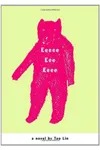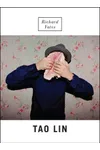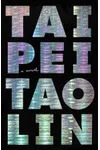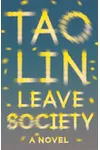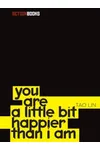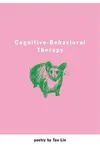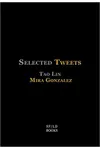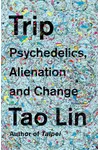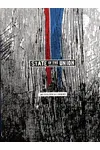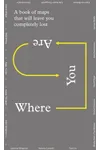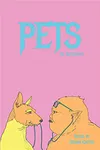Picture a storyteller who captures the restless pulse of the digital age with a minimalist pen—meet Tao Lin! Born in 1983, this American novelist, poet, and short story writer has carved a niche in contemporary literature with his raw, unflinching portrayals of millennial life. From the hypnotic haze of Taipei to the deadpan humor of Shoplifting from American Apparel, Lin’s work dives deep into alienation, technology, and the search for meaning, making him a literary icon for a generation glued to screens.
With a style that’s as stark as a text message yet profound as a late-night chat, Lin has sparked both admiration and debate. His books don’t just tell stories—they mirror the fragmented, hyper-connected world we live in. Ready to explore the mind of a writer who’s redefining modern fiction? Let’s dive in!
The Making of Tao Lin
Born in Alexandria, Virginia, to Taiwanese immigrant parents, Tao Lin grew up in a world straddling cultures and identities. He studied journalism at New York University, but the rigid structure of news writing couldn’t contain his creative spark. In his early twenties, Lin began self-publishing poetry and stories, hustling in New York City’s literary scene. His raw, unfiltered voice caught attention, blending the sincerity of a diary with the absurdity of internet culture. Influences like Lorrie Moore and Bret Easton Ellis shaped his early work, but Lin’s knack for capturing the mundane made him stand out.
Tao Lin’s Unforgettable Stories
Lin’s bibliography is a kaleidoscope of minimalist prose and existential musings. His 2007 novel, Eeeee Eee Eeee, is a surreal tale of dolphins, pizza, and aimless youth, praised for its scathingly funny take on modern ennui. Shoplifting from American Apparel (2009) distills the monotony of urban life into a novella that’s both mundane and profound, earning accolades as a pinnacle of minimalist fiction. Richard Yates (2010) explores a controversial romance with deadpan wit, stirring debates about sincerity versus irony.
His 2013 novel, Taipei, is often hailed as his masterpiece. Following a drug-addled writer named Paul, it weaves technology, addiction, and fleeting connections into a narrative that feels like scrolling through a social media feed. Critics compared it to Hemingway and Proust, noting its meticulous prose and unflinching honesty. Lin’s style—sparse, concrete, and devoid of emotional embellishment—creates a ‘themelessness’ that mirrors the passage of time, making his stories feel eerily universal.
Beyond fiction, Lin’s 2018 nonfiction work, Trip: Psychedelics, Alienation, and Change, delves into his experiences with psychedelics and fascination with Terence McKenna. This Los Angeles Times bestseller marked a shift toward optimism, reflecting Lin’s evolving worldview. Whether in poetry, novels, or essays, Lin’s work captures the digital age’s alienation with a voice that’s uniquely his own.
Why Tao Lin Matters
Tao Lin’s impact lies in his ability to hold a mirror to the millennial soul. As a pioneer of the Alt Lit movement, he blurred the lines between online and offline life, inspiring a wave of writers to embrace autofiction and digital storytelling. His founding of Muumuu House, an indie press, amplified new voices, while his raw social media presence made literature feel accessible. Critics like Ben Lerner praise his work for its ‘force of the real,’ bypassing taste to reveal the rhythm of contemporary consciousness.
Lin’s legacy is his fearless exploration of what it means to be human in a world of screens and substances. By turning the mundane into art, he’s redefined how we tell stories in the 21st century, influencing everyone from indie authors to mainstream novelists. His work remains a touchstone for anyone grappling with the chaos of modern existence.
- Born: July 2, 1983, Alexandria, Virginia
- Key Works: Eeeee Eee Eeee, Shoplifting from American Apparel, Taipei, Trip
- Notable Achievement: Founded Muumuu House, an indie press
Snag Taipei or Trip and dive into Tao Lin’s mesmerizing world of minimalist magic!
